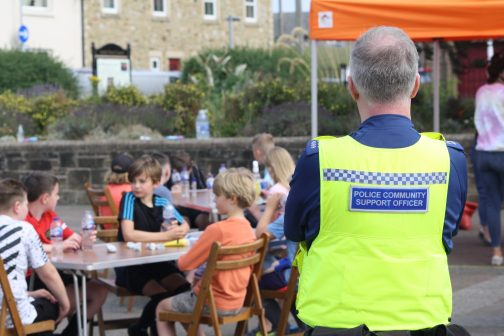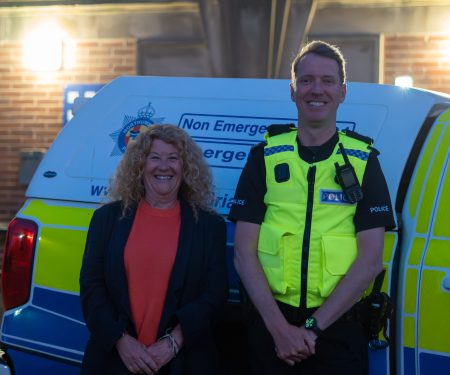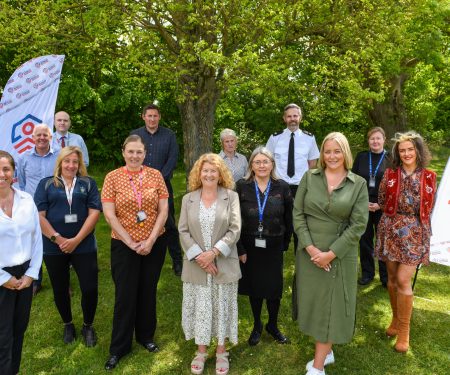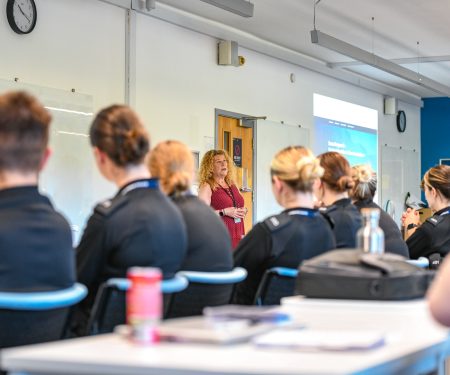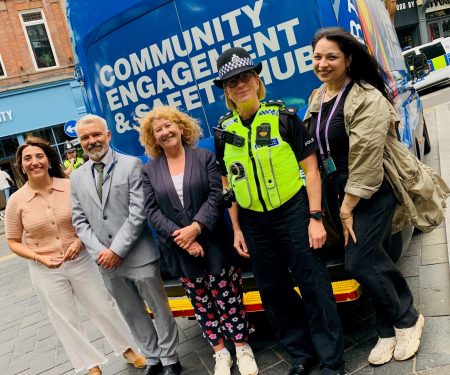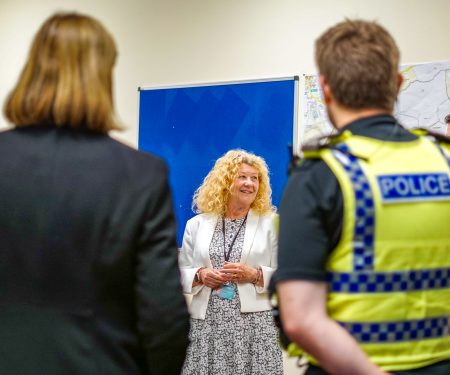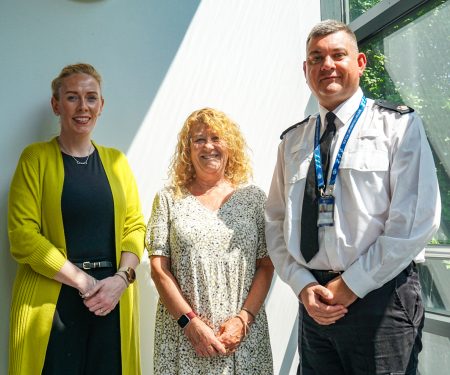SUPPORT FROM NORTHUMBRIA POLICE & CRIME COMMISSIONER TOTALS OVER £1 MILLION AS KIM MCGUINNESS OUTLINES PLANS TO KEEP CRIME IN THE REGION FALLING
With fears that the pandemic could create a ‘lost generation’ of young people, widen the education attainment gap and lead to an increase in vulnerability, Northumbria’s Police & Crime Commissioner responds with a further £135,000 to tackle crime in the region.
Recent analysis by the Office of National Statistics showed positive signs for Northumbria – from March 2019 to 2020 the area recorded less total recorded crime, a reduction in knife related offences and a fall in serious violence offences. Whilst this was welcomed by Kim McGuinness, Northumbria’s Police & Crime Commissioner, the PCC is already looking ahead to the next 12 months
Kim said: “This is clearly very positive news – a reflection that investment into my Violence Reduction Unit (VRU), and through proactive enforcement work by Northumbria Police, we can improve lives to prevent crime across the region. My concern now, is how we ensure we see crime continue to fall in the year ahead.”
“Young people are telling us that they need some extra support this summer, and we will be there to help them. Through my VRU we are allocating a further £135,000 to organisations to tackle the financial challenges arising from Covid-19 in order to help and support vulnerable children.”
A total of 21 organisations will be funded by the PCC, with the grants supporting micro-charities who are working with vulnerable young people at risk of being involved in serious violence. This announcement will bring the total amount of funding provided via the Police & Crime Commissioner, during the Coronavirus pandemic to the regions charities and organisations, to over £1 million.
To ensure the funding is supporting the most vulnerable and in need areas, the PCCs Violence Reduction Unit consulted with 14 to 25 year olds during lockdown to understand the challenges faced during this period and what support may be required as they return to education and other settings in September.
The consultation, which received high engagement as well as praise from education providers & youth organisations, raised key concerns across the respondents in relation to mental health, health & wellbeing and employment support.
Kim said: “I was delighted with the response we got to our youth consultation – over 1300 young people telling us their lockdown experiences and how we can support them going forward. This insight will be crucial in guiding our work and ensuring services are available to provide interventions that will address their vulnerabilities.”
“We know that young people have been more vulnerable than ever during this period, and we cannot let that materialise and lead to criminality. This funding will allow charities to deliver positive diversionary activities and help guide these individuals in a positive direction.”
The funding will not only support young people, but also charities who have been incredibly hard hit during this period as funding uncertainties and lack of support risked the future of many in the sector.
David McGuigan, Project Manager of Longbenton Youth Project, highlighted the importance of this funding on the future of their organisation.
David said: “The grant allows us to bring back our workers from furlough on a part time basis and continue the fantastic work we have achieved since opening in May 19994. Without the grant we may well have never re-opened again and that would be a huge tragedy for those young people we serve.”
Responses to the VRUs youth consultation highlighted anxiety from young people about returning to school and community settings, a challenge overcome by Sporting Chance, one of the organisations funded by the PCC.
Jamie Cairns, Director at Sporting Chance, explained how the funding has been used to support young people during the summer holidays. Jamie said: “We have adopted an open door policy for young people during the lockdown and summer half term which has become a success, however for some young people it has become a norm to not attend the provision therefore home visits have been conducted to provide the support required along with empowering positive behaviours.”
“Each session has been tailored to the individual need of the young person and so far has included; supporting with emotional well-being, offering support to parents to encourage positive behaviours within the community and ensuring young people are safe.”
A full list the funded interventions can be viewed here. The funding, provided by the Home Office, comes as part of an additional £2.9million fund to the 18 Violence Reduction Units to support the VCSE sector.
ENDS

